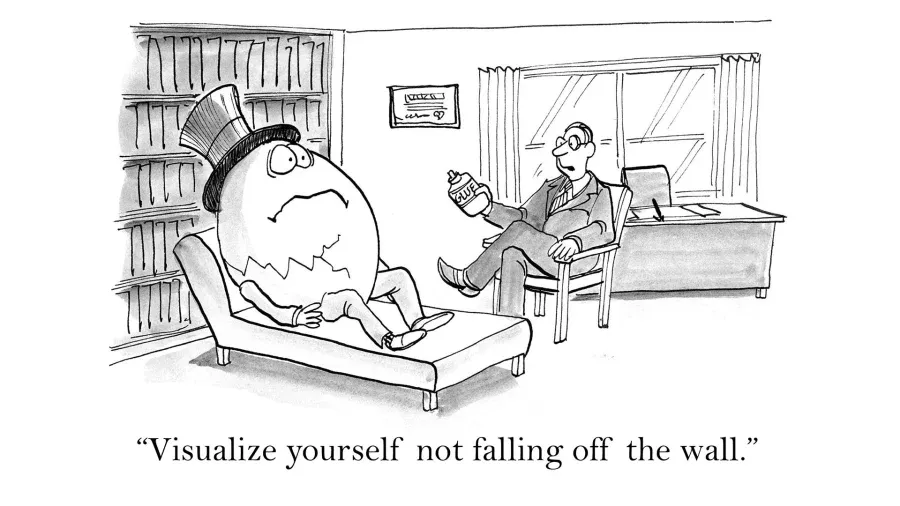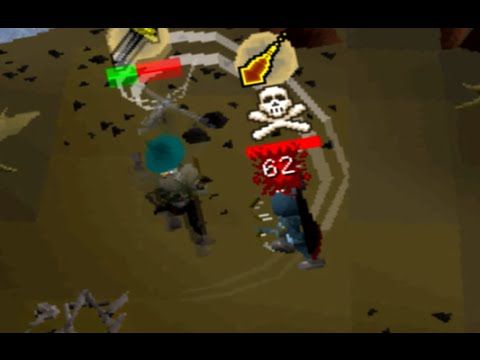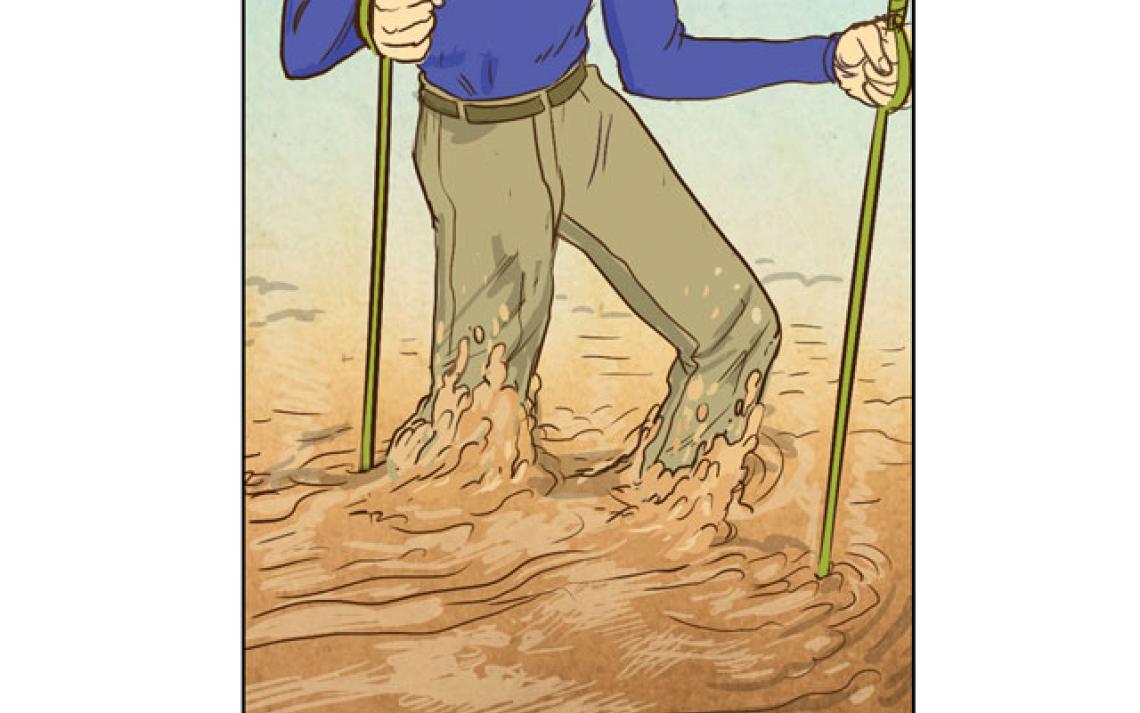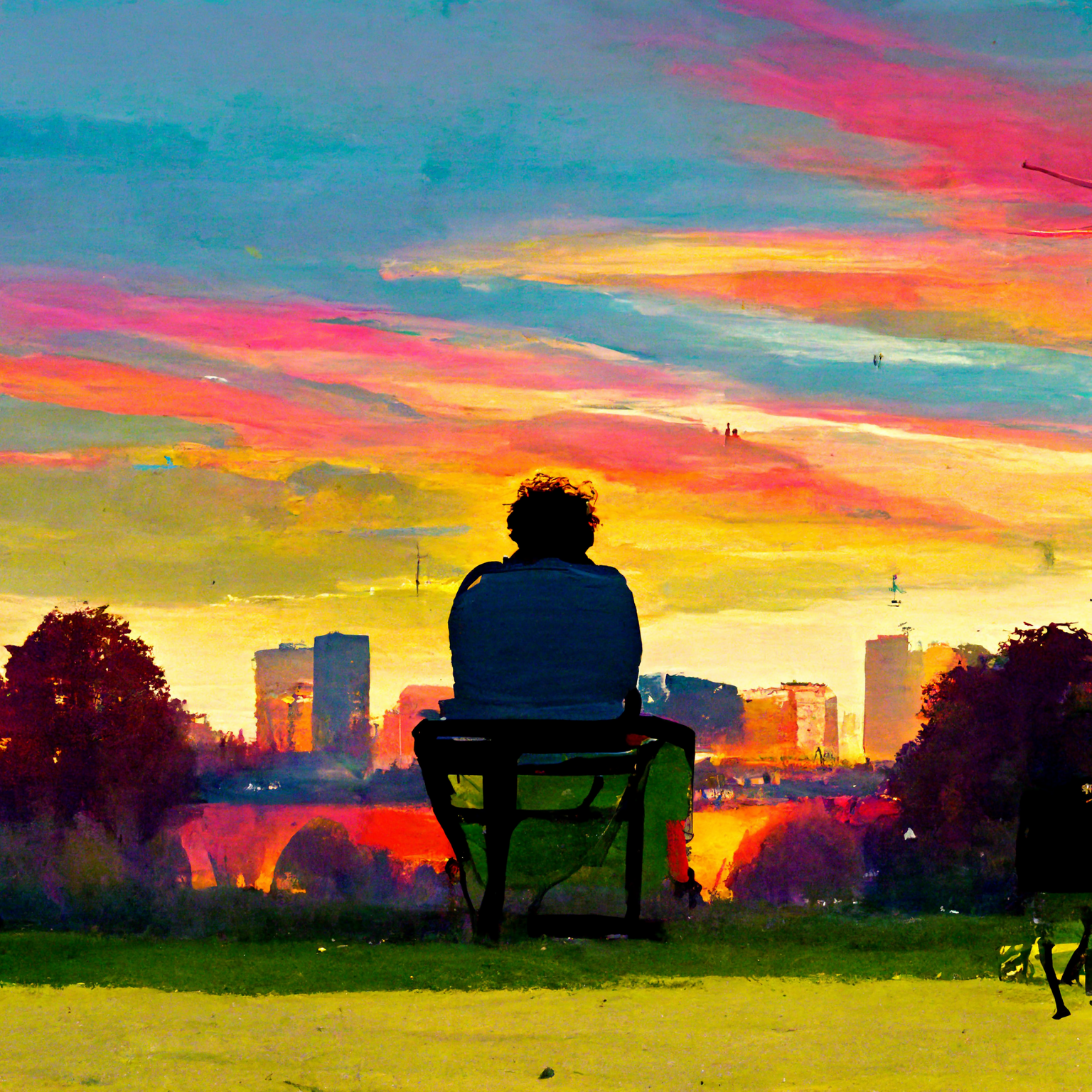A personal essay on the why of therapy
Therapy has been (and continues to be) a useful tool for me when I'm stuck in life. But why?

Buzz words of the 21st century. Ever heard of them?
This post is about therapy. It's written by someone (the present author, Mr Evan Hughes) that's engaged with various therapeutic techniques over the years - and for different reasons. Here I'll try to answer the question: why go to therapy? For an outsider looking in, therapy might seem like a mystery - or worse, a waste of time. So I'm trying to make things a bit more clear. In a later post I'll write about the experience of doing different therapies (like counselling, cognitive behavioural therapy, and hypnosis), what makes these approaches different, and what doing them is actually like.
A note of self-help writing, therapy, and judgement
It's hard to write about therapy without being moralistic! To be moralistic is to make judgements about right or wrong, good or bad. As in, "I went to therapy and it was good for me. Therefore you should go therapy too. Oh, and if it doesn't work for you - that's your fault". That's a load of rubbish. Therapy is about human beings and is highly subjective. Dear psychiatrists and clinical psychologists: yes, you are scientists and you should be thought of as scientists, but the work you do with people inside a therapy room will always remain highly subjective, and you should never forget that.
In our lives there is no right path. There is no point at which people should attend therapy. And there are no rules which state that certain people should or should not attend therapy. In the real world, therapy for person X is helpful, but for person Y not so much. For person Y, they may find the benefits of therapy through other things in life, like: self-understanding, reading, writing, friendship, an intimate relationship, work, or being part of a sports team. Because of this, all self-help writing should be taken with a large pinch of salt (not too seriously).
We are all unique - and we all certainly need different things in life. One size does not fill all, especially in self-help. So don't be fooled by flashy titles and wild promises out there about "success" or "solving problems". That said, it can be useful to share experiences and ideas, even when they risk coming across as moralistic or naïve.
Why therapy?
People might access therapy for different reasons. I personally attended my first therapy session because I was experiencing fairly disruptive sadness, nervousness, and avoidance. For reasons I wasn't quite sure of back then, I would leave school early, skip lessons, and come home to dark room in the afternoon, and just be there with the lights off. Sometimes crying. It was a build up of emotion and a feeling of inadequacy that finally found its physical manifestation. It wasn't a good time.
Then there was gaming: an escape. Playing RuneScape was a great distraction. I played intensely from ages 10 to 20, and was pretty good at the game (I was a beast in the world of RuneScape, but struggling in real life). There's nothing wrong with leaving school early, feeling sad, and playing games. Sometimes things are hard. Sometimes they are hard for everyone. And many people going through hard times won't actually need therapy. 100,000 years ago humans like us walked the earth, foraged and hunted. They explored unknown and dangerous territory. I doubt many of them went to therapy.
So, remind me, why should anyone go to therapy today?

Here's my personal rule of thumb: there is something wrong when life events start to consistently derail life in the present, and eat away at the future. In other words, there is a problem when the strength of certain experiences start to outweigh the pleasurable activities in everyday life, like seeing friends, building new relationships, studying, working, or doing hobbies. These experiences are crucial for human development. We all need to develop in life (and we all need to develop slightly differently). An ancient human, too, may well have needed some kind of counsel if they were stuck in life. Is it so far fetched?
Sometimes our development is stunted by things that were out of our control, things that happened to us, or by things we don't fully understand. Regardless of who we are or what our specific circumstances are, there may come a point when areas of our life feels systematically stuck. When a point like this is reached - a consistent pattern of negativity or avoidance that disrupts fundamental development somehow - it may be time to consider some kind of therapy. Remember, this whole process is highly subjective.
'Disrupted fundamental development' could mean many things. It might mean consistently engaging in painful relationships. It might mean continuously avoiding new things. Or it might mean exploding into excessive anger at others. We're humans. That means we have emotions and make decisions in the world. Much of what we do is normal to us. But when things are hard and stay hard (whatever that means for you), then that's what therapy is for. And there's nothing wrong with that.

Life is full of suffering, difficulty, and random fluctuations that are often unfair, unjust, or just plain bullshit. The idea that everyone should know how to navigate life without support is naïve at best, dangerous at worst. Not family nor friends have been trained to help in difficult times, and sometimes (more often than we'd like to admit) they make things worse. Mostly they do this not intentionally, they just lack the specialised knowledge to help effectively when things are hard.
Therapists, on the other hand, are supposed to fill this gap in specialisation. They have been trained to help people manage what sometimes seems unmanageable. They do not fix people like mechanics fix cars, but help people to help themselves. In therapy, it is you who must take action, not the therapist (good therapists will know how to help with this; they make the process of 'taking action' much easier).
In a metaphor? Therapists are Sherpas who guide us up the mountain when the path is unclear (though they do not carry our stuff). They are Google maps offering us suggestions of where to go in a foreign land. At best, their suggestions are helpful because they assist people to see through the fog, equipping us with practical knowledge to navigate life in the present, future, and to extract lessons from the bullshit and confusing past. But we must never forget that Sherpas and Google maps and therapists offer suggestions - we are always free to reject their ideas, and find our own way (note I believe a lot of the time we'd be wise to listen, especially if they are suggesting things we might find difficult to hear, or if by following our own way keeps looping us back to the same unhappy place).
If we're honest, therapists are not magical. They are fallible human beings who are not always able help their clients (more often than they'd like to admit). This is a hard fact that should not put people off the idea of therapy, though it is frustrating for people seeking good therapy. It's just that human beings do not always click. It's true in friendships; it's true in families; and it's true in therapeutic relationships.

At age 17 my parents suggested the idea, contacted a private therapist, and facilitated my weekly sessions. Dad could not - and would not - force me to go, but kindly suggested that it might be helpful for me to give a try, and I decided to take up his offer. This is actually a very good way to introduce the idea of therapy to someone. First, gently plant a suggestive seed. Second, let them make up their own mind (forcing therapy is like forcing a friendship on someone, in most cases it's just a bad idea). I was very lucky to live in a open-minded household that encouraged action like this - and that's also part of why I'm writing this, because many people did not grow up in circumstances like these.
Luckier still, I developed a good relationship with my therapist, and found their suggestions to be incredibly helpful. Interestingly, my therapist refused to use the term therapist to describe what they did. This was because, to them, the word "therapist" brought to mind all sorts of unpleasant images. It was a term prone to make people feel as if there was something fundamentally wrong with them. As has been said, we're all humans. Humans that love to divide the world up into overly neat categories of our own making: political left and right, moral good and bad, mentally disordered and healthy person. True, we need our labels; but they also mislead us. Life is far too messy for these simple terms. Therapist might be a horrible word, but it doesn't have to be. Meeting up with someone called a therapist when I felt stuck helped me to navigate my next step. It helped at age 17 - and it continues to help today, at age 26.
